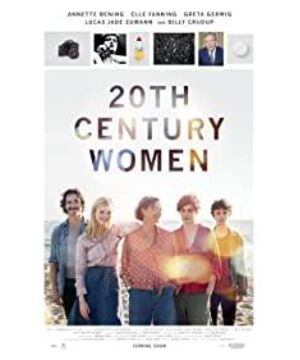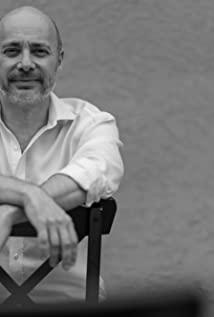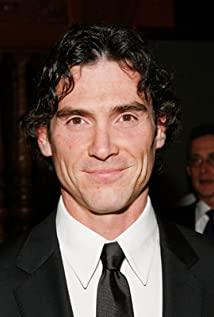Dorothea was born in 1924;
Abbie was born in 1955;
Julie was born in 1962
...
The story of "Twentieth Century Woman (2016)" takes place in 1979, and the above are the three main female characters that appear in this film.
The original intention of opening this film was to hear that some people thought it was the legacy of this year's Academy Awards, so I wanted to find out. After nearly two hours of film, I resisted the desire to stop watching the movie several times, but finally I couldn't help but sigh at the end: Ah, if this is director Mike Mills's biographical portraits of women in the twentieth century, then How will people in the future view women in the 21st century?
At first, I couldn't help but look at "Women of the 20th Century" from a psychoanalytic point of view. The three women around Jamie - the mother Dorothea; The eldest sister, Abbie, is seen as a different object on which he projects the Oedipus complex. But gradually, the direction of this film is not the story of a man's growth, but a thread that allows women born in different eras of the twentieth century to meet and collide from different angles.
Some people say that the director has done a good job of "distributing a thousand pounds", using individuals to reflect the appearance of different eras. To a certain extent, I have a similar perception, but only if I hope he can restrain the vigorous desire to keep playing songs and old photos in the normal narrative process. Of course, this also makes "Women of the Twentieth Century" intertextual, for example, some music lovers can get a different kind of pleasure from it.
When looking back at the birth years of the three female characters, it's not hard to see that they were all born into "baby boomers." It's just that Dorothea came to the world at the end of the post-World War I baby boom, while Abbie and Julie belonged to the "baby boom generation" after World War II. Interestingly, Jamie said in the opening confession: "My mother (Dorothea) was 40 years old when she gave birth to me, and everyone told her that it was too difficult to be an advanced mother." And he, born in 1964, the last year of the second baby boom in general.
Their parents, like Dorothea, are more interesting to me than the generation that experienced the multicultural baptism of the 1960s and 1970s.
During her teenage years, American society was going through the Great Depression, followed by World War II, and she dropped out of school to dream of becoming an Air Force pilot. Before she completed her studies, the war was over... During the long viewing process, the director did not point out Dorothea's obsession with "flying" twice. Until the end of the film, the time went from 1979 to 1983. In her sixtieth year, she once again flew a biplane soaring in the sky—a self-piloted plane voyage, which was her second husband’s annual birthday present.
That moment was very touching. Although the director often portrays her as an out-of-date "old-fashioned" halfway through the film - she finds rock and roll harsh, she fears radical feminism, she thinks the phrase "menstruation" in public is loud People are ashamed. But Dorothea's long-standing hobby of "flying", in my opinion, is more representative of female liberation and the transformation of society's positioning of women's roles.
When it comes to the relationship between women and "flying," it's impossible to ignore the name Amelia Earhart. Her connection to the skies as the most famous female pilot of the 20th century lasted from the 1920s to the 1930s, which happened to run through the time before Dorothea entered flight school. That is an amazing woman, who has created several amazing flight records on behalf of all mankind, and tirelessly promoted women's flying power in magazines; every time she appeared in public, she dressed up as a tomboy instead of a lady. Showing off—especially in men's trousers—was deviant even in the early 20th century.
This style has greatly influenced a number of bold actresses in the film industry, attracting Marlene Dietrich, Katherine Hepburn and others to follow suit - not only in the movie as a pilot, but also in private life with "flying". Threads of connection, think about the origin of the latter and Howard Hughes. In Women of the Twentieth Century, Dorothea also made clear her fandom, especially her obsession with Humphrey Bogart (and Casablanca (1942)). If nothing else, this is another movie fangirl who has been re-educated in self-awareness in the theater.
It wasn't until this moment that I finally understood why Dorothea said such a cool thing in the middle of the film: she stumbled upon Julie's frequent uninvited nights in Jamie's room. So one day, on the way Julie was leaving, he stopped by the car and asked to clarify. "Can I have a cigarette too?" Julie said to Dorothea, who was driving while smoking. "Farewell, it's not good for your health," she retorted. The girl continued to ask: "Then you haven't been smoking all the time." She laughed silently: "When I started smoking, cigarettes did not mean harmful, but just represented fashion and avant-garde, so... For me it is not the same."
In 1979, Dorothea was over half a hundred years old and had begun to slowly get used to some new things, but this did not prevent her from being a cool adult... Yes, she was cool. Because "cigarettes" and "flying" were, in her teenage years, a symbol of breaking through barriers for women. And she embraced it all.
Back to the self-reflection at the beginning. Indeed, from women of different ages, it is easier to see the imprints of the changing trends of thought. They went from being tortured to being respected, to entering a field that has been artificially forbidden for thousands of years. And every step of the march is like using a prism to decompose this human society. What does a "21st century woman" look like? This is the open issue that Twentieth Century Women leaves us.
View more about 20th Century Women reviews











